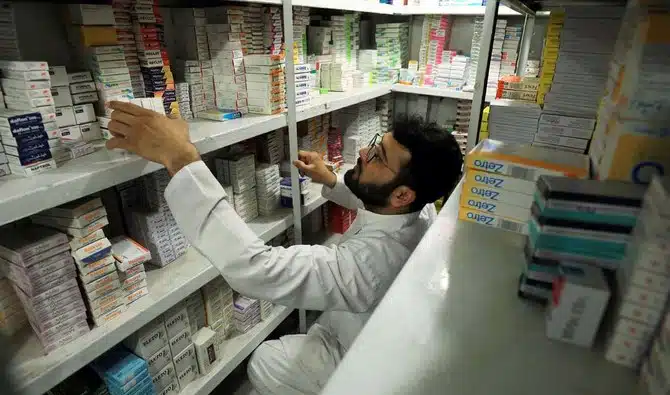Due to a lack of medications and medical equipment, doctors are unable to perform procedures, as per the reports.

Table of Contents
Pakistan’s protracted economic crisis has had a huge impact on the healthcare industry:
With people struggling to access vital medicationsPakistan’s capability to acquire necessary drugs or the active pharmaceutical constituents (API) used in domestic products has been drastically hampered by a lack of foreign currency reserves in the country.
As a result, patients are suffering in hospitals, forcing nearby pharmaceutical manufacturers to scale back their operations. Croakers are forced to croak due to a lack of specifics and medical inventories. According to Pakistani media sources, operating apartments have less than the two-week supply of anesthetics needed for sensitive surgeries such as heart, cancer, and organ transplants. The situation may potentially lead to employment losses in Pakistani hospitals, aggravating people’s misery.
The pharmaceutical industry has criticized the fiscal system for the healthcare system’s dilemma, stating that marketable banks aren’t granting fresh Letters of Credit (LCs) for their significance. The Pakistan Medical Association( PMA) lately called for government involvement to forestall a disaster. nonetheless, rather than taking immediate action, the authorities are presently assessing the magnitude of the deficiency.

In order to ascertain the extent of the critical medication scarcity, government survey teams reportedly visited pharmacies in Punjab, Pakistan. The shops stated that the maturity of their consumers is being impacted by the lack of many introductory yet pivotal specifics. Among them are significant specifics like Panadol, Insulin, Brufen, Disprin, Calpol, Tegral, Nimesulide, Hepamerz, Buscopan, Rivotril, and others.
According to the report, Pakistan Pharmaceutical Manufacturers’ Association (PPMA) Central Chairman Syed Farooq Bukhari stated that 20 to 25 percent of the pharmaceutical industry is now slow. He further added, “The worst drug extremity would erupt in the country if current programmes (the ban on significant) remain in place for the coming four to five weeks.”
Cases are made to suffer at hospitals that are running short of specifics, while original medicinal directors are compelled to reduce their product. In the face of a medicine and equipment shortage, doctors are postponing operations. Currently, many foreign businesses have stopped doing business in Pakistan due to the country’s poor investment returns, while indigenous pharmaceutical companies are active in the underground market.

Deficits in noncommercial requests for medicinals began to emerge, resulting in black marketing. A lack of drugs could lead to a fatal accident. According to sources, the pharmaceutical businesses have expressed concern that, if they do not acquire the raw material, they will not be suitable to give the drug worth Rs. 40, and indeed, at least Rs. 60.

The Federal Ministry of National Health Services, Regulations, and Coordination (NHS, R & C) has contacted the Ministry of Finance to address the issue of Letters of Credit (LCs) being faced by the pharmaceutical industry for the import of raw materials for medicines, foreseeing a shortage of medicines, particularly essential and life-saving drugs, in the country in the near future. The federal health ministry was warned by the Drug Regulatory Authority of Pakistan (DRAP), which the NHS official said they approached, that if raw materials for medicines and other products used in their products couldn’t be imported, there could be a deficit in the coming months and a serious health emergency in the nation.
“Pakistan’s medicine manufacturing industry is import-based, which means that almost 95 percent of the medicines produced in the country are manufactured with raw materials imported from China, India, and some other countries of the world. “If raw materials or active pharmaceutical ingredients (API) are not imported into Pakistan, medicine production may halt,” NHS officials said.













